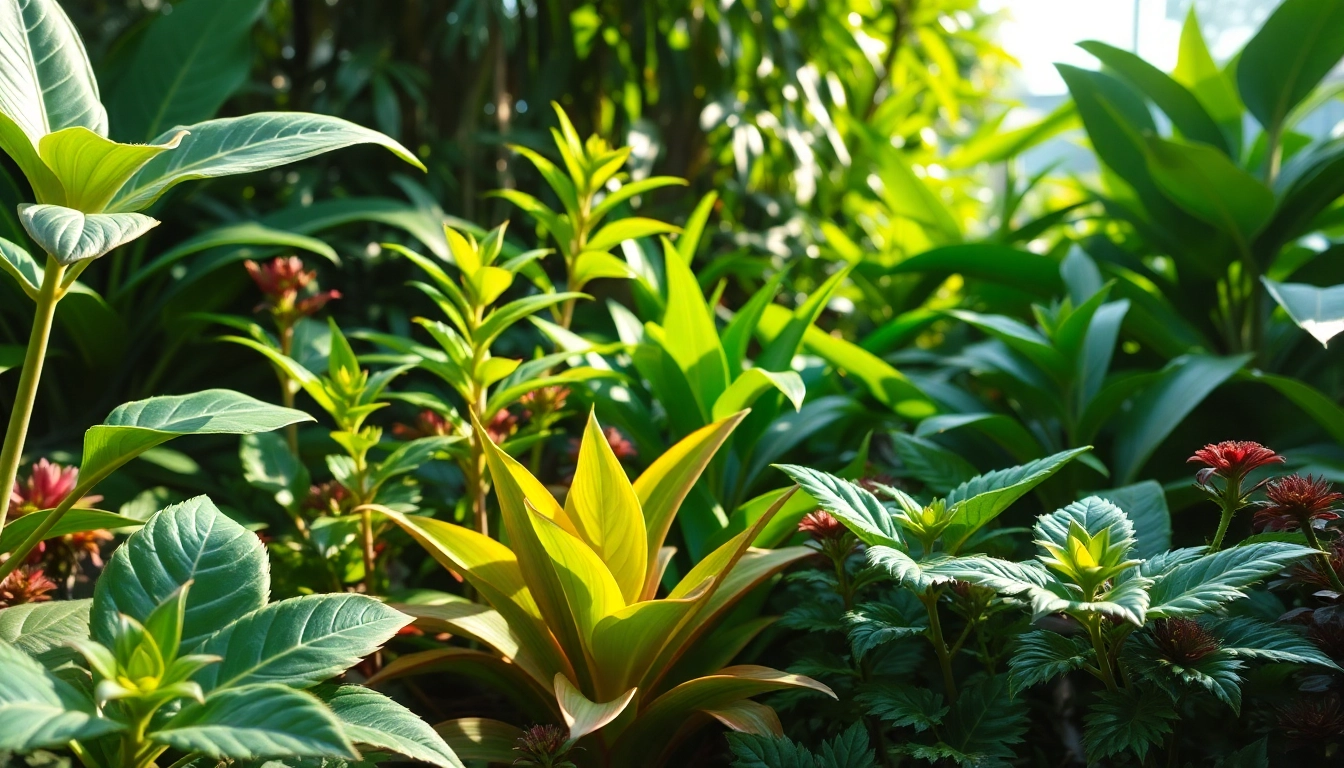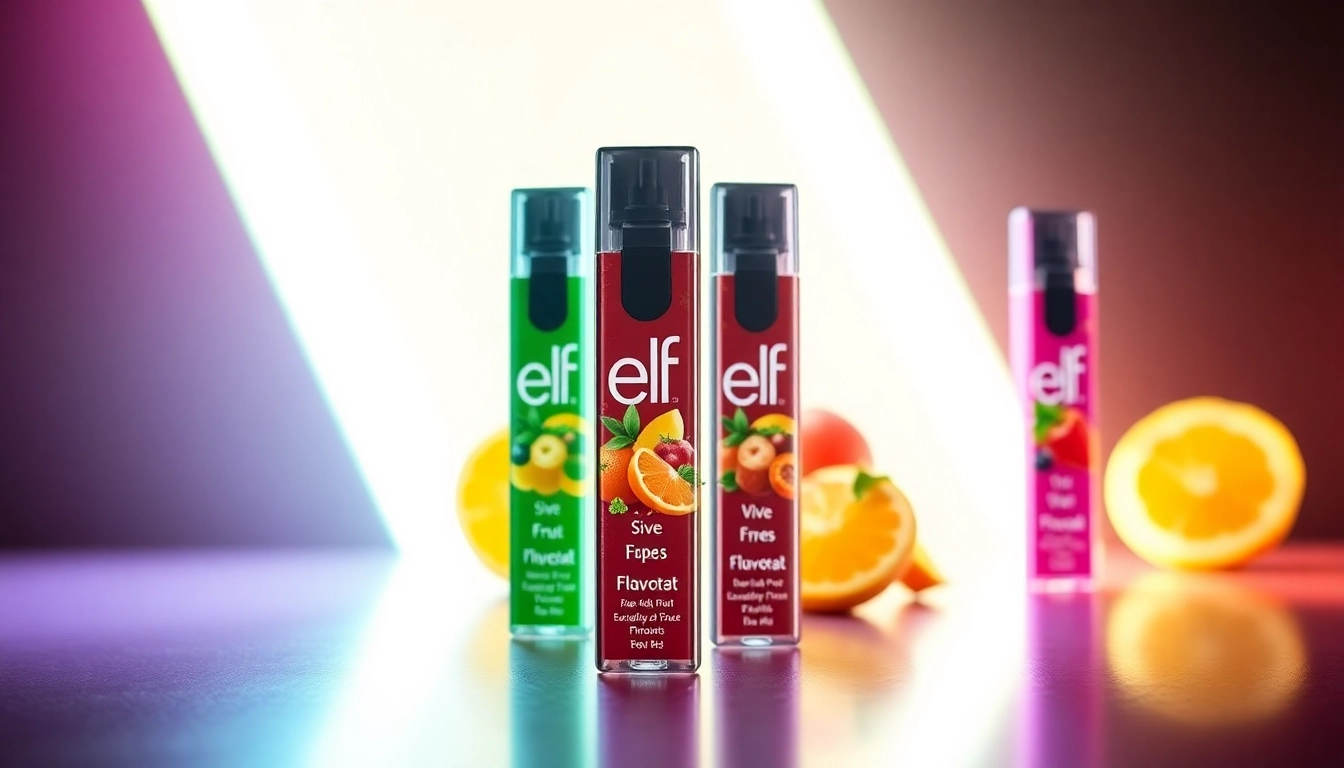Harness the Power of Botanicals to Enhance Natural Wellness and Beauty
Introduction to Botanicals and Their Benefits
Botanicals have been an integral part of human health and beauty practices for thousands of years. Derived from plants, these natural substances encompass a wide range of extracts, oils, herbs, and roots that offer myriad benefits for the body and skin. As consumers increasingly seek clean, sustainable, and effective products, botanicals have re-emerged at the forefront of wellness innovation. Their ability to support health, enhance appearance, and promote overall well-being makes them an essential component in modern natural products. For those interested in exploring this plant-based treasure trove, understanding the roots and contemporary science behind botanicals can deepen appreciation and inspire more effective applications. For more insights, visit Botanicals.
Understanding Botanicals and Their Role in Health Products
Botanicals are plant-derived substances used for medicinal, cosmetic, or health-promoting purposes. They include a vast array of elements such as leaves, flowers, seeds, bark, and roots, all of which contain bioactive compounds like antioxidants, flavonoids, alkaloids, and essential oils. These compounds interact with the body’s systems to provide benefits ranging from anti-inflammatory effects to immune support.
In health products, botanicals serve multiple functions: they can act as active ingredients targeting specific conditions, as carriers of essential nutrients, or as natural preservatives enhancing product stability. Their natural origin aligns with the current consumer trend favoring products free from synthetic chemicals, making botanicals a preferred choice for clean-label formulations.
Modern science corroborates many traditional claims about botanicals, revealing mechanisms of action at the cellular level. For instance, research shows that botanical antioxidants like polyphenols can neutralize free radicals, reducing oxidative stress associated with aging and chronic diseases. This confluence of tradition and science underscores the vital role botanicals play in health and wellness.
Popular Botanicals and Their Applications
Common Botanicals in Skincare and Cosmetics
Many botanicals have become staples in skin care, thanks to their nourishing, soothing, and protective properties. Aloe vera, chamomile, and green tea are renowned for their calming effects and antioxidant content, making them ideal for sensitive or aging skin. Hibiscus, often dubbed “nature’s Botox,” contains natural acids that gently exfoliate while stimulating collagen production.
植物提取物如积雪草、薰衣草和玫瑰,则在提升肌肤弹性和改善肤色方面表现出色。多种丰富的植物油,如霍霍巴油、玫瑰果油和葡萄籽油,也广泛用于润肤和抗衰,同时拥有天然的抗菌性能,减少皮肤感染风险。
Botanicals for Immune Support and Overall Health
Herbs such as echinacea, elderberry, and turmeric are well-known for their immune-boosting properties. Echinacea has been used traditionally to prevent colds and respiratory infections, with recent studies supporting its role in reducing symptom severity. Elderberries, rich in flavonoids, help strengthen immune responses, especially during flu season. Turmeric, containing the active compound curcumin, offers powerful anti-inflammatory and antioxidant effects that can aid in managing chronic inflammation and supporting joint health.
Additional botanicals like ginseng, astragalus, and reishi mushroom enhance vitality and resilience against oxidative stress, reinforcing overall health. Incorporating these botanicals into daily routines—via teas, tinctures, or supplements—can create a proactive approach to maintaining wellness.
Incorporating Botanicals into Daily Wellness Routines
Integrating botanicals into everyday life can be both simple and effective. herbal teas infused with chamomile or ginger promote relaxation and digestion. Nutritional supplements enriched with botanical extracts improve immunity and energy levels. Skincare routines include botanical-infused serums and moisturizers for healthier, radiant skin.
Guidance from health professionals or carefully formulated products ensures safe and balanced usage. With increasing options available, consumers can tailor their botanical routines to their specific health goals, leveraging the power of nature for optimal well-being.
Sourcing and Manufacturing Botanicals
Sustainable Harvesting and Quality Assurance
Ensuring the sustainability of botanical sourcing is crucial not only for environmental conservation but also for maintaining product efficacy. Ethical harvesting involves respecting plant populations, avoiding over-harvesting, and employing practices that prevent habitat destruction. Cultivation under controlled conditions enhances consistency and quality while reducing wild harvest pressures.
Quality assurance processes include rigorous testing for purity, contaminant absence, and potency. Certification standards such as Good Agricultural and Collection Practices (GACP) and Good Manufacturing Practices (GMP) are integral in verifying product safety and consistency throughout the supply chain.
Organic vs. Conventional Botanical Sourcing
Opting for organic botanicals minimizes exposure to synthetic pesticides and fertilizers, aligning with consumer demands for clean and sustainable products. Organic cultivation often involves biodiverse practices, supporting soil health and reducing environmental impact.
Conventional sourcing, while typically more economical, may involve chemical treatments and less environmentally friendly practices. Manufacturers balancing cost and quality often prefer organic sources for premium products, leveraging certifications such as USDA Organic or COSMOS Organic to assure consumers of their integrity.
Regulatory Considerations and Certifications
Compliance with regional regulations ensures that botanical products meet safety standards and are accurately labeled. Certifications such as ISO, NSF, and organic seals boost consumer confidence and facilitate market access. It is essential for manufacturers to stay updated on evolving legislation related to botanical ingredients, including permissible claims and testing requirements.
Creating Effective Botanicals-Based Products
Formulation Tips for Botanicals in Health Products
Successful botanical formulations require understanding synergy, stability, and bioavailability. Combining complementary botanicals can enhance therapeutic effects—e.g., pairing antioxidants like vitamin C with botanicals such as acerola or rosehip maximizes benefits.
Stability concerns are addressed by selecting appropriate solvents, pH levels, and preservation systems to prevent degradation of sensitive compounds like essential oils or polyphenols. Emulsification techniques and nanoencapsulation can improve delivery and absorption, increasing product efficacy.
Packaging and Branding Strategies for Botanical Products
Packaging should reflect the natural essence of botanicals—think recyclable glass bottles, minimalist designs, and clear labeling emphasizing organic and purity claims. Transparent communication about sourcing, processing, and benefits builds consumer trust.
Branding strategies include storytelling about heritage, sustainability guarantees, and scientific validation. Certifications and third-party verifications serve as trust signals, differentiating products in a competitive marketplace.
Marketing and Educating Consumers about Botanicals
Educational marketing helps consumers understand the science behind botanicals and dispels myths. Content such as blogs, videos, and webinars can showcase research findings, usage tips, and success stories. Clear instructions for incorporation into routines empower consumers to maximize benefits and foster brand loyalty.
Future Trends and Innovation in Botanical Products
Emerging Botanical Ingredients and Technology
Research advances reveal new botanical candidates with potent health benefits—such as adaptogenic herbs, exotic superfoods, and rare medicinal plants. Biotechnology and extraction technologies, including supercritical CO₂ extraction and fermentation, enable sustainable and targeted compound isolation, enhancing potency and safety.
Consumer Preferences Shaping Botanical Products
Consumers are increasingly demanding personalized solutions, transparency, and ethically sourced ingredients. Digital platforms facilitate customization, while social responsibility influences purchasing decisions, pushing brands to adopt responsible cultivation and fair trade practices.
Integrating Botanicals into Personalized Health Solutions
Innovations in data analytics and biomarker research pave the way for tailored botanical formulations. Combining individual health profiles with specific botanical profiles can optimize effectiveness, leading to bespoke supplements, skincare, and functional foods aligned with personal genetics and lifestyle.



